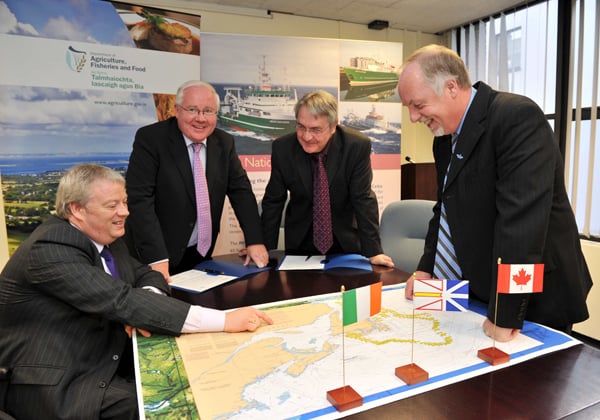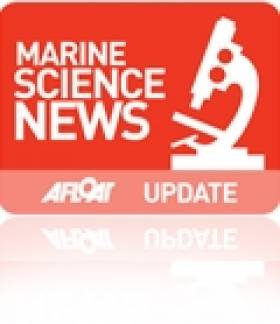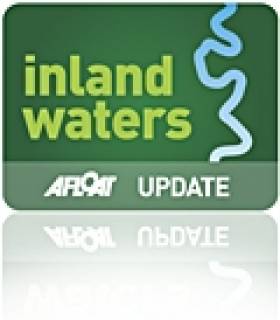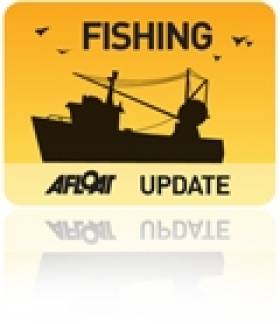Displaying items by tag: Brendan Smith TD
Budget 2011: Fisheries Spending Maintained, Cuts to Irish Sports Council
Expenditure on fisheries will be maintained at 2010 levels under the Budget for 2011 announced today.
Minister for Agriculture, Fisheries and Food, Brendan Smith TD, welcomed the protection of expenditure in forestry/bioenergy and fisheries, saying it “reflects the important economic and social contributions that both sectors make to rural and coastal communities throughout the country and the potential that they have to play in the wider economy.”
Elsewhere in the Budget, the rise in the cost of fuel - which will hurt motorists and many boat-owners alike - is accompanied by cuts across Government departments which could affect maritime activities from sport to coastal policing.
Cuts to the Tourism, Culture & Sport will mean reduced finding for the already cash-strapped Irish Sports Council and other sporting bodies, hitting hard on Ireland’s developing sporting talent - particularly in niche maritime and water sports.
No specific cuts to naval spending were outlined, but the Defence budget will be reduced by €28 million in the coming year, which will also see a halt on the acquisition of replacement equipment and maintenance projects.
However this does not apply to the producement of two new naval vessels which “will continue within the reduced allocation for Defence spending”, according to Minister for Defence Tony Killeen TD.
No details were given for any proposed cuts to the Irish Coast Guard and Maritime Safety Directorate, although the Department of Transport which overseas both arms of the Maritime Safety Services will face cuts of €32 million in 2011.
Minister Smith said "I am delighted to sign today a new Accord on Marine Research between Newfoundland and Labrador and the Irish Authorities. The initiative involves a partnership approach between the Fisheries and Marine Institute of Memorial University of Newfoundland and Ireland's Marine Institute including the charter of the state-of-the-art research vessel 'Celtic Explorer'. Both Institutes have strong capabilities in ocean technology and research. Through this alliance, there is now an opportunity to bring the strengths of both Institutes to greater levels".
Minister of State Connick added that "The proposed EU Atlantic Strategy under the EU Integrated Maritime Policy and the support for a Joint Programming Initiative on Healthy Seas & Oceans recently announced by Ms. Máire Geoghegan-Quinn the European Commissioner for Research, Innovation and Science, highlight the increasing importance of linking the scientific challenges on both sides of the Atlantic."
Welcoming the chartering of the RV Celtic Explorer, Mr Clyde Jackman, Minister for Fisheries and Aquaculture – Newfoundland said "It will enable our academic institutions to take their already world class research to the next level and support a state of the art fishing industry that is based on better science. This initiative will create many new opportunities for young Newfoundlanders and Labradorians, as a result of a more vibrant fishing industry and in conducting fisheries science research".
"Thanks to the support of our Provincial Government, the Marine Institute of Memorial University of Newfoundland is further positioned to play a vital role in the future of fisheries in Newfoundland and Labrador. With the chartering the RV Celtic Explorer and the creation of our new Centre for Fisheries Ecosystem Research the Marine Institute is further positioned to play a vital role in fisheries science research in our province," said Glenn Blackwood, the Executive Director of the Fisheries and Marine Institute of Memorial University of Newfoundland.
"Research lead by personnel from the Centre for Fisheries Ecosystem Research and conducted aboard the RV Celtic Explorer will help develop a better understanding of the state of Newfoundland and Labrador's fish stocks and the dynamics of its marine ecosystems, providing new information to support better decisions." he said.
"The strong alliance the Marine Institute, Ireland has with the Fisheries and Marine Institute of Memorial University of Newfoundland will enable transatlantic collaboration to support the rapidly expanding fisheries research programmes in Newfoundland waters" said Dr Peter Heffernan, CEO of the Marine Institute.
"We are delighted with this opportunity to work with such a prominent team of fisheries scientists and we look forward to exploring with our Newfoundland colleagues how we can also build stronger links as part of a wider international ocean observation initiative to study the Gulf Stream and North Atlantic Drift. This could link SMART technology to monitor climate change and environmental conditions in both Irish and Newfoundland waters and stimulate commercial spin off opportunities."
"Projects linking technologies, equipment and expertise on both sides of the Atlantic would therefore enhance Ireland and Newfoundland's capability to perform in the forefront of scientific endeavours as our strategic geographic location demands," he further added.

Brendan Smith TD, Minister for Agriculture, Fisheries and Food and Sean Connick TD, Minister of State at the Department of Agriculture, Fisheries and Food signing an accord with their Newfoundland counterparts Minister Clyde Jackman and Deputy Minister Alastair O’Reilly In Agriculture House.
New Climate Model Will Chart Climate Change on Mayo Rivers
Launching the publication of the final report on RESCALE project, Minister Smith said that the project was a major milestone in our understanding of the effects of climate change on sensitive upland catchments in the west of Ireland. "While global climate change is a worldwide phenomenon, the research findings in this report provide information at the local level that will be invaluable to fisheries and land use managers," said the Minister. "Practical research work such as RESCALE is essential if we are to plan for the future management of our valuable agriculture, fisheries and forestry resources in the west of Ireland."
The project is studying data from an unbroken record of information on water temperature, air temperature, river discharge, rainfall and a host of other factors which exists for the catchment dating back to the 1950s for the Burrishoole river. This information collected at the Furnace facility and the neighbouring Met Eireann synoptic station, is invaluable as a resource, not only for measuring physical change over the past sixty years, but also as a proven yardstick to "ground-truth" any computer-generated models describing the likely effects of global warming. Minister Smith said "I am very impressed with the work being done here in Newport and the high level of collaboration between the Institute and the Universities on marine research and its practical application to real situations to help inform decision making into the future."
Minister for Agriculture, Fisheries and Food Brendan Smith TD and Minister of State with responsibility for Fisheries, Sean Connick TD, today launched Bord Iascaigh Mhara's (BIM's) new three year strategy (2010 – 2012) and the Irish Seafood National Programme to 2013. The event, which was hosted by BIM at the decentralised Department and BIM offices in Clonakilty, was attended by a large audience from the wider seafood sector.
In his address, Minister Smith welcomed the opportunity to launch these two significant initiatives acknowledging how appropriate it was that they come on the same week as the launch of Food Harvest 2020, which focused on the contribution to be made by the food sector generally in Ireland's economic recovery.
Minister Smith said that both he and Minister Connick attached "a high level of importance on BIM's transformation agenda for the seafood sector and on the associated seafood development measures contained in the Seafood National Programme".
BIM's new strategy document concentrates on avenues to deliver essential developmental services to a seafood industry undergoing rapid and unparalleled change. The Minister commended BIM for clearly setting out challenging targets for themselves for delivery by 2012, including the creation of 600 jobs, an additional €50m in value added seafood sales, and greater differentiation of 40,000 tonnes of Irish seafood products worth €120m.
Minister Smith went on to say "I have consistently stated that the seafood sector, made up as it is of indigenous operators, will have a significant role to play in Ireland's economic recovery. BIM's new strategy is a welcome addition to the suite of harmonised strategies for the seafood sector including Steering a New Course, Sea Change, as well as Food Harvest 2020. It adds to and fully complements the existing strategies and positions Ireland well to maximise the very large opportunities which are presenting themselves in the international seafood markets".
Focusing on the National Programme for the development of the Seafood Sector, Minister of State Connick said "The measures contained in this Programme are the tools to enable the Government and its agencies deliver on the objectives contained in the suite of Seafood focused strategies, and places Ireland in a promising position to capture some of the undoubted opportunities which are emerging in both the international and domestic seafood markets".
Minister Connick said that the proposed investments in the seafood industry constitute a significant vote of confidence by the Government in the sector. He went on to say "The programme published today envisages a significant state investment into the Irish seafood sector from now until the end of 2013. A dedicated allocation of €6.5m is being made available for the remainder of 2010 for the development of the aquaculture and processing sectors." While the programme also facilitates access to other funding from Bord Bia for marketing, from Enterprise Ireland for processing, and from BIM for added value and innovation and fisheries support".
On the launch of the two initiatives Minister Connick said "The launch of these two complementary initiatives to drive forward the development of a modern, high value added, sustainable and expanding seafood sector is an important event in delivering the real opportunities which exist for income generation and enhanced employment in our coastal communities".





























































